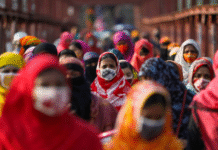This is no way to protest

What makes this whole sham of a protest worse are the conditions which have led to the protest in the first place
The right to peaceful protest is enshrined in the constitution of any functioning democracy.
But the way the two-day transport worker’s strike has been carried out is unacceptable, plain and simple.
Not only had their protests removed much of the pubic transport, holding the country hostage and causing untold grievances to the commuters of various cities, especially the capital, it has also been conducted in the most objectionable of manners.
It is shameful that there were incidents in which the strikers had dragged drivers out of their vehicles, threatened them with violence, assaulted them, and, what they have deemed to be their most common form of “punishment,” covered drivers and their vehicles with engine oil.
Is this any way for a protest to be conducted?
And, with no public transport available, it is the citizen who suffers, unable to get to their livelihoods, and having to spend much more than their budget allows.
What makes this whole sham of a protest worse are the conditions which have led to the protest in the first place, with their demands seeking amendments to the Road Transport Act.
Considering the decrepit situation of Bangladesh’s traffic situation, in which accidents have become the norm and reckless driving is treated with widespread impunity, tougher punishments are required to ensure the safer flow of traffic on the streets.
With deaths caused by reckless driving, most of the time at the hands of public transport workers themselves, such demands are insensitive to the thousands of people who lose their lives to such accidents every year, and are ignorant of what is required to improving all our lives.
Changing the Road Transport Act so that “accidentally” killing people on the road becomes a bailable offense will do nothing to control an already woeful situation on the roads.









